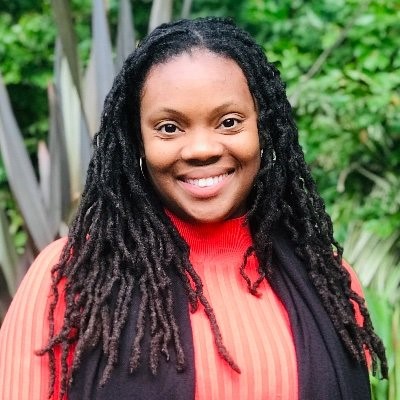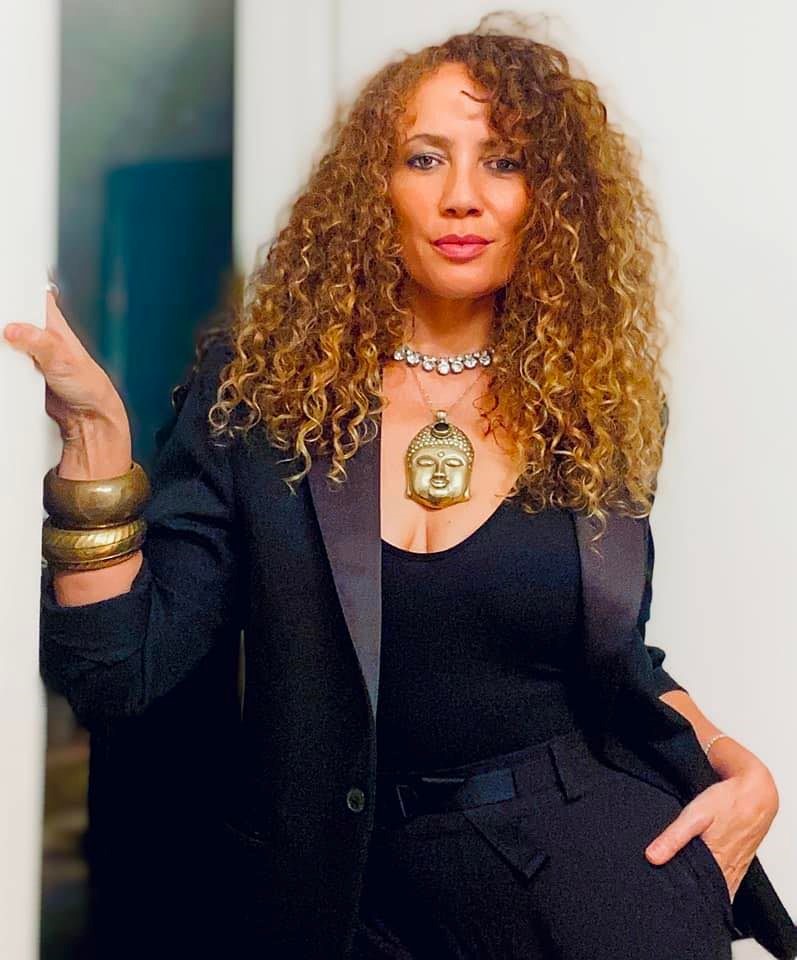Edward Henderson | California Black Media
Frontline Doulas provides African American families in Los Angeles County non-medical professional perinatal services at no cost.
This includes physical, emotional, informational, psychosocial and advocacy support during the pregnancy, childbirth and postpartum period. Women of ages — with all forms of insurance — are accepted and encouraged to apply for services.
Given that community-based doulas focus on marginalized patients and under-served families, they are more likely to support clients challenged by institutionalized racism and cultural incompetence within the medical setting. While serving past birthing clients in extreme situations, Frontline’s team of doulas strive to act with strength and compassion like soldiers on the frontline of battle. For this reason, supervisors and mentors Dr. Sayida Peprah and Khefri Riley affectionately gave them the name “The Frontline Doulas.”

Dr. Sayida Peprah co-founder of Frontline Doulas (X photo)
California Black Media (CBM) spoke with co-founder Khefri Riley. She reflected on Frontline’s accomplishments this year and the organization’s goals moving forward.
Responses have been edited for clarity and length.
Looking back at 2024, what stands out to you as your most important achievement and why?
In 2024, we are humbled to have been awarded the contract for the Los Angeles County Medical Doula Hub, which means that we are charged with creating a hub of connectivity and support for generating training and helping to create the new doula workforce for the medical doula benefit that went live in California on Jan. 1, 2023.
The major accomplishment of this historical benefit — in which we were part of the co-design team and are currently still working with the DHCS (Department of Healthcare Services) – is to bring equitable birthing services to Los Angeles County, especially for Black and Indigenous birthing families.
How did your leadership and investments contribute to improving the lives of Black Californians?
We believe that the revolution begins in the womb. What we mean by that is we have the potentiality and the ability to create intentional generational healing from the moment before a child was conceived, when a child was conceived, during this gestational time and when a child is born.

And there’s a traditional saying in indigenous communities where what we do now affects future generations going forward. So, the work that we do with birthing families, in particular Black birthing families, is to create powerful and healthy outcomes for the new generation so that we don’t have to replicate pain, fear, discrimination, or racism. We can replicate joy and happiness and truth and collective liberation, and we can do that in birth. That’s where it starts.
What frustrated you the most over the last year?
Working in reproductive justice often creates a heavy burden on the organization and the caregivers that deliver the services most needed to the communities. So, oftentimes, we’re advocating for those whose voices are silenced and erased, and you really have to be a warrior to stand strong and firm. Our dedication to our communities can sometimes be tiring — repeating the same thing over and over. But you know the statistics, the dire outcomes, can take a lot out of you.
What inspired you the most over the last year?
My great-grandmother. My father was his grandmother’s midwife assistant when he was a young boy. I grew up with their medicine stories — the ways that they healed the community and were present to the community, even amidst Jim Crow. Knowing their resilience and their passion and their incredible gifts, who are we not to continue their lineage and uplift their message of loving the babies, loving the mothers and birthing people and loving the earth.
What is one lesson you learned in 2024 that will inform your decision-making next year?
I find that you have to really reach for your highest vision, and you have to stand firm in your value. The value you have as a sovereign self, the value that you have as a human being. And the value that we have in community and the value that we have in collective liberation. Because oftentimes, when we’re talking about large-scale systems, government, healthcare, politics, they’re not necessarily going to look out for you. You have to raise your voice, speak up and demand, and know your intrinsic value.
In one word, what is the biggest challenge Black Californians face?
Amplification. We cannot allow our voices to be silent.
What is the goal you want to achieve most in 2025?
I really would like to see a reduction in infant mortality and maternal mortality within our communities and witness this new birth worker force be supported and integrated into systems. So, that way, we fulfill our goal of healthy, unlimited birth in the Black community, and indeed in all birthing communities in Los Angeles and California.